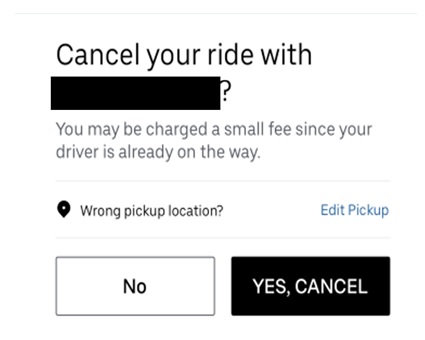An increase to penalties for breaches under the Australian Consumer Law, the prohibition of unfair contract terms and a crackdown on misleading or deceptive conduct; Piper Alderman recaps some of recent key events in the competition and consumer law space in the lead up to 2023.
AMENDMENTS TO THE COMPETITION AND CONSUMER ACT 2010
On 10 November 2022, the Treasury Laws Amendment (More Competition, Better Prices) Act 2022 (Cth) (TAA) came into effect. The TAA has the effect of:
- raising the maximum penalties applicable for breaches of the Competition and Consumer Act 2010 (CCA); and
- establishing a regime that makes unfair contract terms illegal and which imposes penalties for businesses that include these terms in standard form contracts.
Increased penalties for breaches of the CCA
Under the TAA the maximum penalties for contraventions of the CCA by bodies corporate have increased by up to five times their previous level. From 10 November 2022, the maximum penalties courts may impose on bodies corporate for breaches under the CCA are the greater of:
- $50 million (five times the previous maximum of $10 million);
- three times the value of the benefit obtained; or
- 30 per cent (previously 10 per cent) of the body corporate's turnover during the period it engaged in the conduct the subject of the breach.
The TAA has also increased the maximum penalty for breaches of the CCA by individuals to $2,500,000 (previously $500,000).
Prohibition of unfair contract terms
Prior to the introduction of the TAA, businesses were not prohibited by law from including unfair contract terms in standard form contracts, nor would they be liable for any penalty for including such terms in standard form contracts.
The TAA will make it illegal for businesses to use or rely upon unfair contract terms in standard form contracts with consumers or businesses that have less than 100 employees or an annual turnover of less than $10 million (small businesses), with courts able to impose considerable financial penalties for any breaches.
Penalties will only be applicable from 10 November 2023. In the meantime, there is a 12 month grace period with in which businesses have the opportunity to remove any unfair contract terms from their standard form contracts so as to be compliant with the new legislation.
MISLEADING AND DECEPTIVE PRACTICES
Several large international and Australian-based companies found themselves in the ACCC's cross hairs during 2022, with some receiving significant financial penalties for their conduct.
ACCC v Uber
Uber was recently fined $21 million after it admitted that it misled customers about their fee estimates and trip cancellation fees during the period December 2017 to September 2021.
Cancellation warning
Uber conceded that during December 2017 and September 2021, Uber customers who attempted to cancel their bookings were displayed a message along the lines of: "You may be charged a small fee since your driver is already on their way" (see example below). This prompt was displayed to all customers attempting to cancel their booking, irrespective of whether they had cancelled within Uber's free five minute cancellation window.

An example of the message that was displayed to Uber customers who attempted to cancel their booking
(Source: The Australian Competition & Consumer Commission)
More than two million customers were shown the cancellation warning.
Although it was found that Uber did not charge a fee to customers who cancelled their bookings within the free cancellation window, and that only 0.4 per cent of customers were influenced by the warnings to proceed with their booking instead of cancelling, the Court imposed an $18 million penalty.
Fare estimates
Between June 2018 and August 2020, Uber admitted that it displayed price estimates to Sydney customers for its "Uber Taxi" option which were inaccurate and more than what customers would actually pay.
Although customers often paid less than the estimates and the Court was of the view that customers did not suffer any actual detriment, the price estimates were overestimated 89 per cent of the time and were deemed to be misleading to consumers. Uber was ordered to pay $3 million in penalties.
This case serves as a reminder for businesses that misleading or deceptive conduct can extend beyond advertisements or marketing and can include the prompts and information that is displayed to customers within mobile applications. It also highlights the need to take particular care when blanket-style communications are made to consumers to make sure that they do not mislead or deceive consumers in certain circumstances.
ACCC v SmileDirectClub
In November 2022, the Federal Court fined dental provider SmileDirectClub $3.5 million for misleading or deceptive conduct and ordered that it compensate consumers for any losses suffered a result.
The ACCC alleged that between May 2019 and October 2020, SmileDirectClub made false or misleading statements to consumers on its website and in emails, SMS text messages and information cards provided in store (see an example of an email sent to consumers below). It was alleged that these statements incorrectly advised consumers that their private health insurance may cover a portion of the cost of SmileDirectClub's aligners, in circumstances where their private health insurance was highly unlikely to cover this product.

An example of the "Good News" email that was sent to prospective customers by SmileDirectClub
(Source: The Australian Competition & Consumer Commission)
A court found that during the relevant period, 98.5 per cent of Australian private health insurers did not provide coverage for the costs of SmileDirectClub's aligners. SmileDirectClub was ordered to compensate all consumers who were impacted and to implement a compliance program and pay a contribution to the ACCC's costs.
Business should take care when making representations that involve third parties to ensure that the information that they are providing to consumers is accurate.
Crackdown on "greenwashing"
Earlier this year, the ACCC announced that it was cracking down on businesses engaging in "greenwashing", the practice of making misleading or deceptive statements or claims that a company, product and/or service is environmentally friendly, sustainable or ethical.
Since then, the ACCC has launched two "internet sweeps" to identify misleading environmental and sustainability marketing claims.
The attention from the ACCC coupled with the recent increase to penalties for breaches under the CCA should prompt businesses to review any environmental or sustainability claims to ensure that they are able to substantiate such claims with credible evidence so as to avoid breaches under the CCA and the possibility of incurring substantial penalties.
The content of this article is intended to provide a general guide to the subject matter. Specialist advice should be sought about your specific circumstances.

